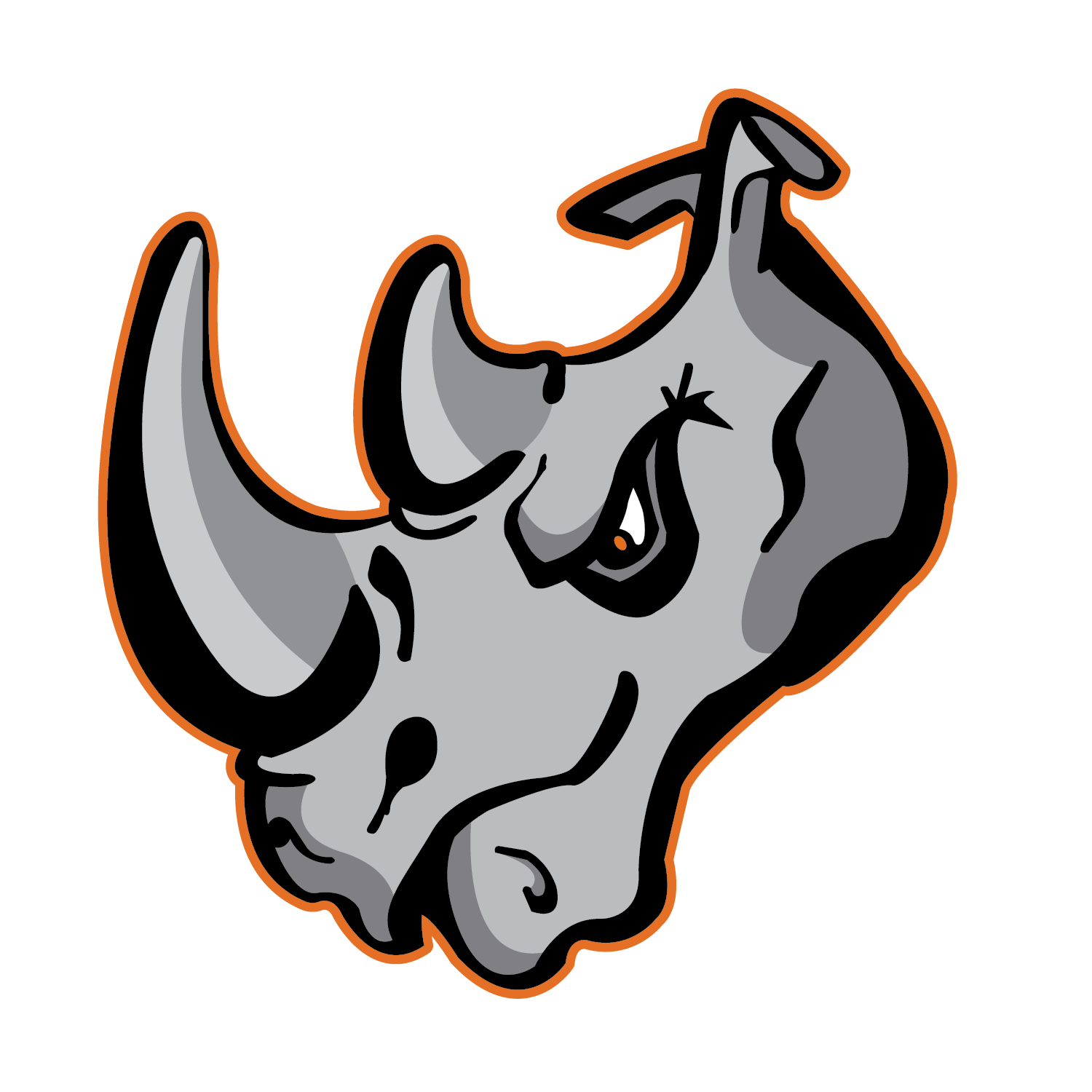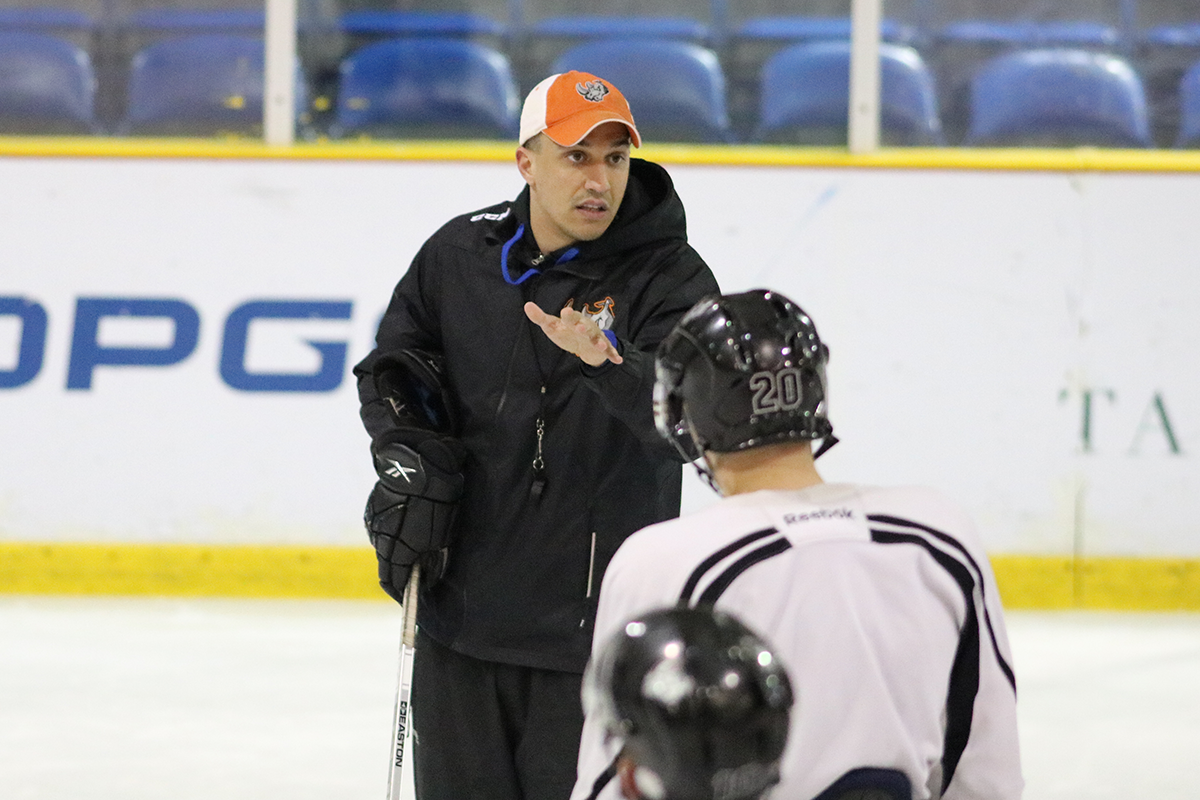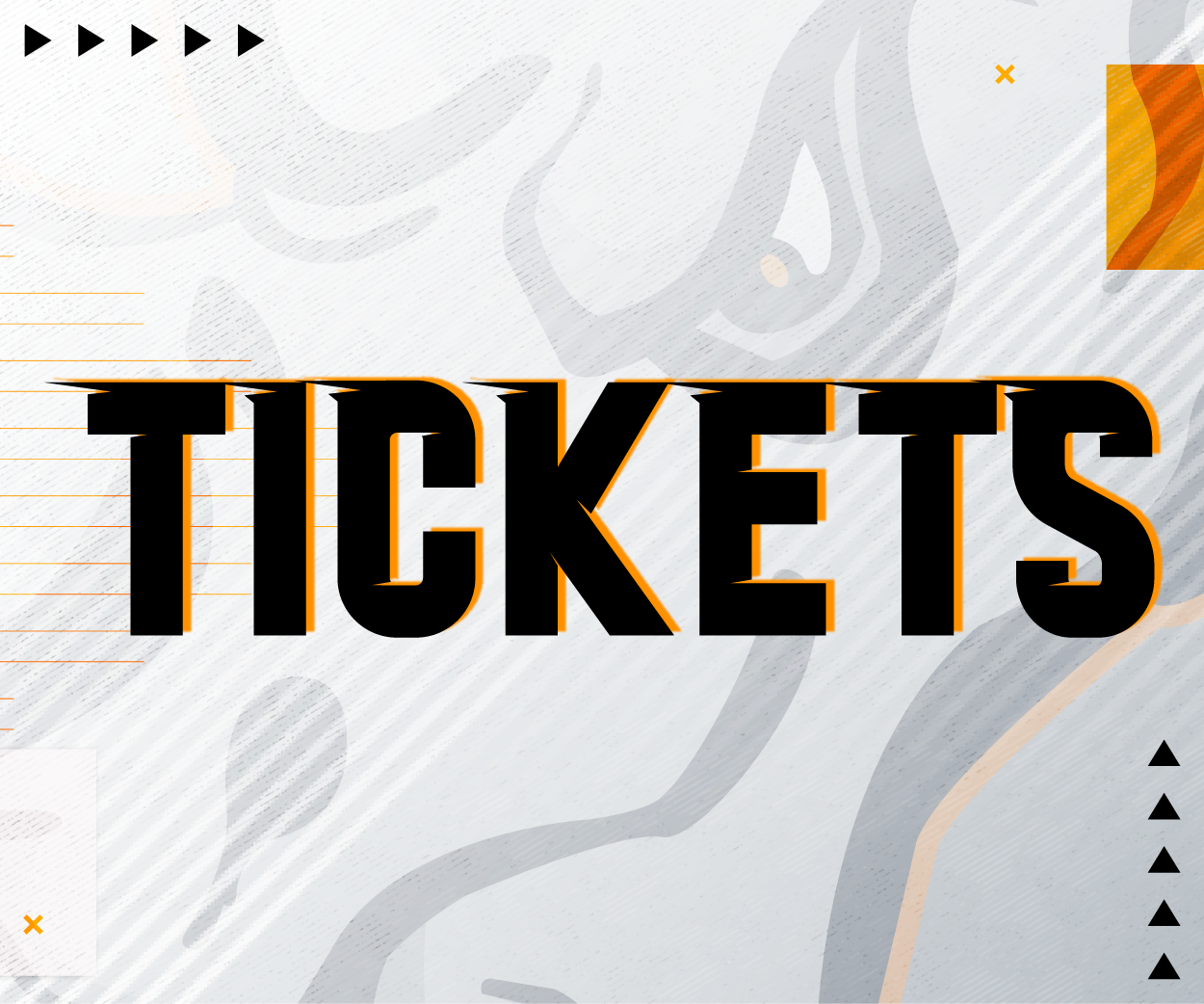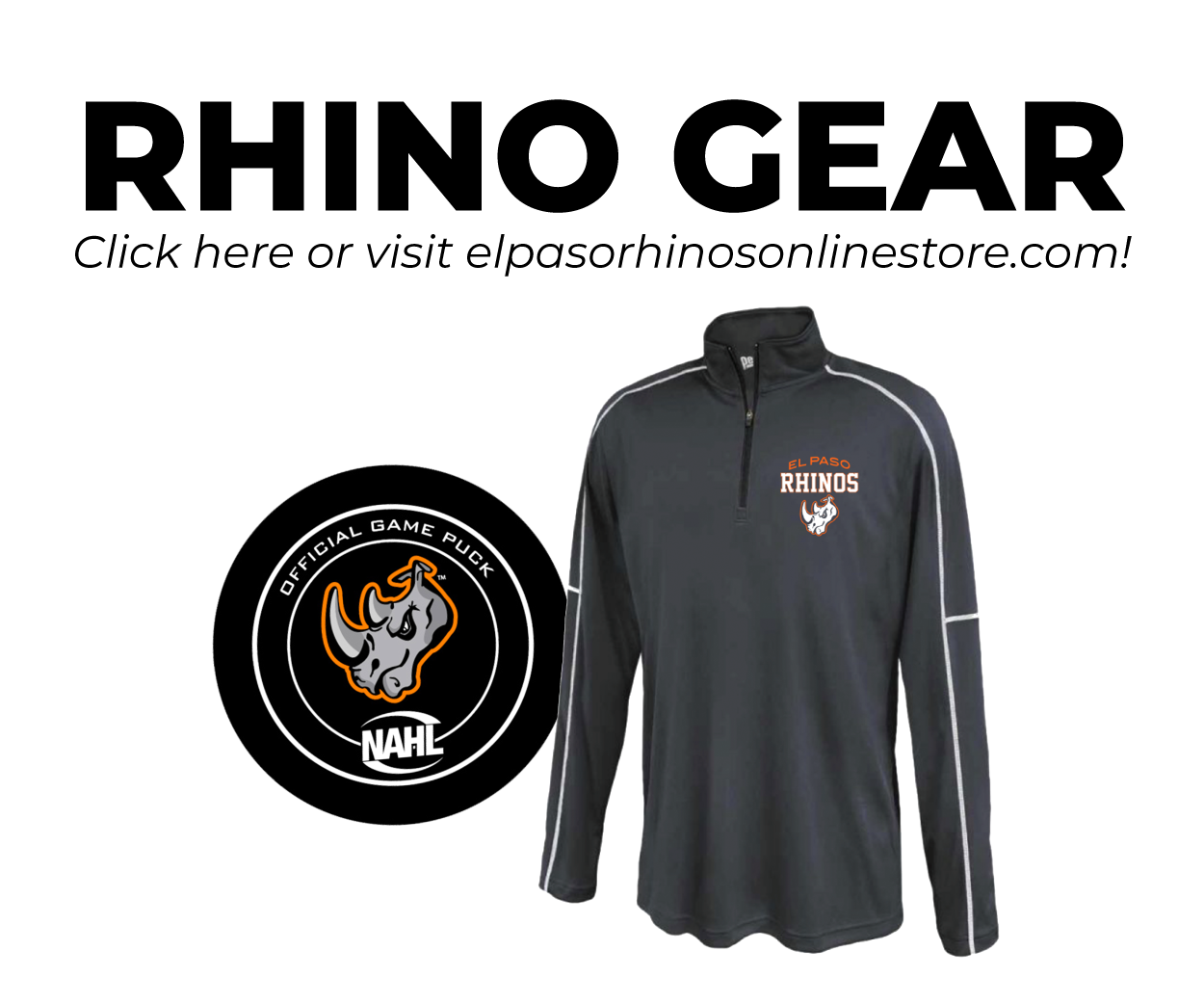Former Rhino player, Vinny Bohn, is returning to the Rhinos as an Associate Head Coach for the Rhinos’ NA3HL team. Bohn played in Rhino Country in 2010 and 2011 and was an Assistant Coach for the Rhinos for two seasons between 2017-2019. We ask him about his hockey career and his decision to return to the Sun City.
Where did you grow up? How’d you start playing hockey?
I grew up in Spring Hill, Florida. In 1992 the Tampa Bay Lightning came to town and my family had season tickets. After he took my brother to the inaugural game against Chicago, my dad came home from work the next day to my brother playing in the driveway with one of his old sticks. I am fortunate that I got to grow up in a hockey family.
How did you come to play for the Rhinos in 2010?
I was playing in St. Cloud, Minnesota for the Granite City Lumberjacks and they were looking to move my rights. At the time, I knew Josh DeLoach who was playing in El Paso and he told they were looking for a defenseman. I called Trevor Converse, the Director of Player Personnel, and two days later I met the team in Tulsa. Herm (Head Coach Cory Herman) scratched me the first game because he wanted me to watch how the Rhinos played. The next night I was in the lineup and was never taken out in my two years after that.
How did you end up playing at Worcester State University?
We were in Las Vegas at the WSHL Showcase and Worcester Coach John Coughlin pulled me out of the locker room. He told me he liked my game and he wanted me to be part of his D-core. He called every Tuesday after the Christmas break and when the Rhinos made it Nationals in Minnesota, he traveled there all the way from Worcester, Massachusetts. After we lost in the National Championship game, he pulled me out of the locker room again. I remember thinking how much this coach must really want me since he traveled so far. When I visited, I fell in love with the campus and I knew some of the other recruits that were coming in. But I wouldn’t have ended up in Worcester without John Coughlin.
Tell us about your coaching career.
In 2015-16, I started coaching the with the Atlanta Capitals of the NA3HL as an Assistant Coach. I moved to the NAHL’s Topeka Roadrunners in the same season. For the 2016-17 season, I was the Assistant Coach at Marian University (NCAA III) before coming back to the El Paso to coach for the Rhinos from 2017 to 2019. For the 2019-20 season, I had the opportunity to the be an Assistant Coach for the Cedar Rapids RoughRiders in the USHL.
Why did you return the Rhinos from the USHL?
First off, I am very grateful for the opportunity that Mark Carlson, the Sdao family, and the Roughriders organization gave me during my time in Cedar Rapids. Every day, I learned a ton from Coach Carlson and the players there. When Herm called me with the news the Rhinos would be joining the NAHL and the NA3HL and then offered me a position, I couldn’t pass it up. As a former Rhino player, I was humbled because I know all the players that have come and gone and have worn the orange jersey. I also know of all the efforts everyone in the organization puts in every day, and to be part of this new chapter in Rhino Country—I jumped at the opportunity.
How do you think playing in Rhino Country shaped the way you coach here now?
I think playing here has shaped me to be structured, to be on time, and to be prepared. The only way to do all of that regularly is to have a strong work ethic. As a former player and being part of the coaching staff, it starts from the top of the organization.
What have you learned from other programs and positions that you will use here?
I have been very fortunate to have coached and been around different levels and great hockey people. I think everywhere I’ve been, I have taken away something from the Head Coaches I’ve worked for. For instance, my first coaching job was with my older brother. From him, I learned how to have a plan for everything. Then, working in college with Lincoln Nguyen, I understood how to gameplan for each opponent. Working for Mark Carlson, I was taught how instrumental it is to pay attention to detail in all aspects of your team. Again, I am very fortunate to know a lot of coaches at all levels and I try to learn as much as I can from all of them.
What is your favorite part of coaching?
I think it’s easy to say winning is any coach’s favorite part of coaching. But I don’t think anything beats when you have a player who is willing to be coached. You see him putting in the work, asking questions, doing the extra 1% when nobody is looking. Then to see them be rewarded—that’s my favorite part.
What is the most challenging part of coaching?
The most challenging thing every season is searching for that team identity. Every season and every team is different. I can’t help but think of the two years I was here as a coach. That first year’s team was special and we had an incredible regular season. We marched through playoffs, but then our backs were against the wall going into the third game of round robin and somehow, they found a way to battle back and win the Thorne Cup at home. Then the following year, I think we all thought it was going to be a similar year, but at the start of the year, it seemed like that group had to battle for every win. Then we caught fire and swept through playoffs to win 2-0 in the final game in Ogden. And to win against Ogden was truly special and rewarding for 2018-19’s team.
What’s different now from when you played here? And what’s similar to when you played here?
A lot is different now from when I played here. The seats above the benches weren’t there, the luxury boxes weren’t around, and we thought, as players, it was a packed house when the orange section and the two grey sections had fans. But now, you can’t even find seats in those sections.
At the same time, some things give me flashbacks from when I played. Herm’s pep talks are the same, Duke is still the best broadcaster, Rohde was reffing, Donnie Martinez and his chalk talks, Keith Pehle was taking stats—always with gum, the Erramouspe’s were at every game, and the fans are still the best in junior hockey.




































